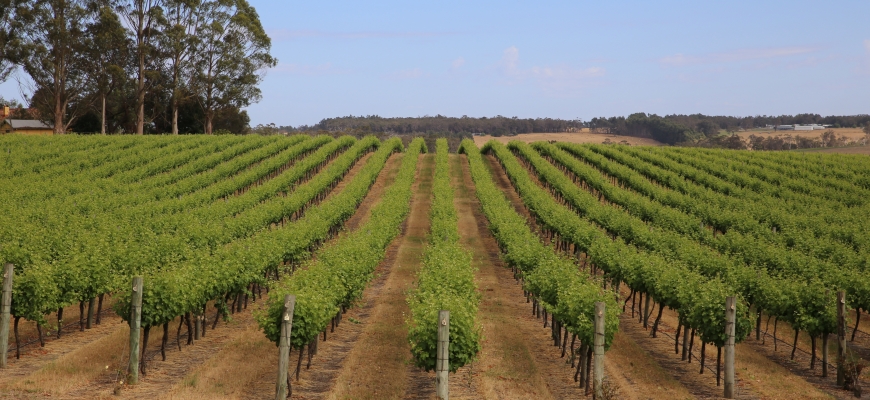The Winery and Vineyard
The Langton Vineyard in Mount Barker, where the winery is based, consistently produces the highest quality fruit resulting in award winning wines with balance, structure and flavour.
Established in 1978, the Langton Vineyard has some of the most mature vines in the Great Southern.
Premium wine can only come from excellent fruit and it is for this reason our winemakers dedicate many months leading up to vintage, visiting and monitoring vineyards throughout the Great Southern wine region - ensuring that only the best parcels of fruit are selected and picked for the West Cape Howe range of wines.
Premium fruit is also sourced from Frankland River, Porongurup and the Perth Hills.
Our Sustainability Practices
As our climate changes, an important part of our viticulture and winemaking is to look at each stage and see how we can incorporate sustainable practices so that we can continue making wine well into the future.
Many organic principles are incorporated into our vineyard systems.
All nutrition requirements are based upon stringent soil analysis, and a spring application of mineral based fertiliser that is microbially seeded is spread as required. During the warm summer months liquid kelp is used as a conditioner to maintain leaf health so important during the final ripening phase.
Minimal herbicide is used in the vineyard, with an integrated farm management approach allowing sheep to graze after harvest to control weeds and provide organic matter for the vineyard. We always use a very soft fungicide program and rely on organically approved sulfurs and copper as the backbone of our programs used in conjunction with canopy manipulation to reduce the incidence of pests and disease.
It is a holistic approach with each component affecting the next with a strong emphasis on soil and plant health as a natural deterrent to pest and disease.
The installation of solar panels in 2013 has reduced our drawdown from the grid by 25%. This covers the power requirements for our water filtration and waste water processing plants.
All water used on site is generated from runoff both in the vineyard and non-production areas of the winery. While we have no need for the large number of 138000L tanks in our tank farm to make wine, we are able to filter and store our water in these to ensure a healthy supply across the dry summer months.
Our grape marc (stems, skins and seeds) and other solid winemaking by-products are composted and mulched for use in the vineyard. A modern waste water treatment plant allows us to continue the cycle, with all processed winery water making its way back to the irrigation dams.
Small changes in our packaging process including glass choice and water recycling go some ways to reduce our environmental impact. The Cape to Cape range, making up 60% of our production, uses Lean + Green lightweight packaging, which saves 21% glass resulting in a lower carbon footprint. Our generic cartons can be used between different wines and vintages and this small step has reduced our cardboard waste significantly.

